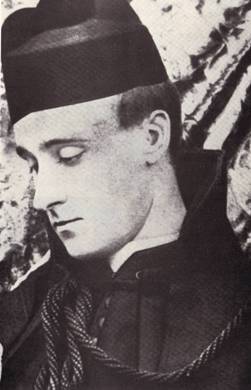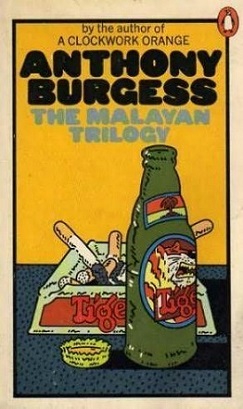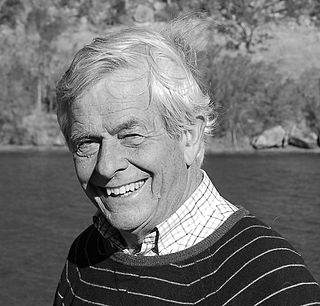
John Keats was an English poet of the second generation of Romantic poets, along with Lord Byron and Percy Bysshe Shelley. His poems had been in publication for less than four years when he died of tuberculosis at the age of 25. They were indifferently received in his lifetime, but his fame grew rapidly after his death. By the end of the century, he was placed in the canon of English literature, strongly influencing many writers of the Pre-Raphaelite Brotherhood; the Encyclopædia Britannica of 1888 called one ode "one of the final masterpieces". Jorge Luis Borges named his first time reading Keats an experience he felt all his life. Keats had a style "heavily loaded with sensualities", notably in the series of odes. Typically of the Romantics, he accentuated extreme emotion through natural imagery. Today his poems and letters remain among the most popular and analysed in English literature – in particular "Ode to a Nightingale", "Ode on a Grecian Urn", "Sleep and Poetry" and the sonnet "On First Looking into Chapman's Homer".

Robert Southey was an English poet of the Romantic school, and Poet Laureate from 1813 until his death. Like the other Lake Poets, William Wordsworth and Samuel Taylor Coleridge, Southey began as a radical but became steadily more conservative as he gained respect for Britain and its institutions. Other romantics such as Byron accused him of siding with the establishment for money and status. He is remembered especially for the poem "After Blenheim" and the original version of "Goldilocks and the Three Bears".

Aldeburgh is a coastal town in the county of Suffolk, England, north of the River Alde. Its estimated population was 2,276 in 2019. It was home to the composer Benjamin Britten and remains the centre of the international Aldeburgh Festival of arts at nearby Snape Maltings, which was founded by Britten in 1948. It also hosts an annual poetry festival and several food festivals and other events.

Elizabeth Bishop was an American poet and short-story writer. She was Consultant in Poetry to the Library of Congress from 1949 to 1950, the Pulitzer Prize winner for Poetry in 1956, the National Book Award winner in 1970, and the recipient of the Neustadt International Prize for Literature in 1976. Dwight Garner argued in 2018 that she was perhaps "the most purely gifted poet of the 20th century".
This article contains information about the literary events and publications of 1754.

Frederick William Rolfe, better known as Baron Corvo, and also calling himself Frederick William Serafino Austin Lewis Mary Rolfe, was an English writer, artist, photographer and eccentric.

George Crabbe was an English poet, surgeon and clergyman. He is best known for his early use of the realistic narrative form and his descriptions of middle and working-class life and people.

Mary Russell Mitford was an English author and dramatist. She was born at Alresford in Hampshire. She is best known for Our Village, a series of sketches of village scenes and vividly drawn characters based upon her life in Three Mile Cross near Reading in Berkshire.

The Deserted Village is a poem by Oliver Goldsmith published in 1770. It is a work of social commentary, and condemns rural depopulation and the pursuit of excessive wealth.

Peter Grimes, Op. 33, is an opera in three acts by Benjamin Britten, with a libretto by Montagu Slater based on the section "Peter Grimes", in George Crabbe's long narrative poem The Borough. The "borough" of the opera is a fictional small town that bears some resemblance to Crabbe's – and later Britten's – home of Aldeburgh, Suffolk, on England's east coast.

The Malayan Trilogy, also published as The Long Day Wanes: A Malayan Trilogy in the United States, is a comic 'triptych' of novels by Anthony Burgess set amidst the decolonisation of Malaya.

Christopher Keith Wallace-Crabbe is an Australian poet and emeritus professor in the Australian Centre, University of Melbourne.

The Village is a narrative poem by George Crabbe, published in 1783. The poem contrasts the traditional representation of the rural idyll in Augustan poetry with the realities of village life.
Nationality words link to articles with information on the nation's poetry or literature.
Mary Leadbeater was an Irish Quaker author and diarist who lived most of her life in the planned Quaker settlement of Ballitore, County Kildare. She wrote and published extensively on both secular and religious topics ranging from translation, poetry, letters, children's literature and biography. Her accounts of the Irish Rebellion of 1798 provide an insight into the effects of the Rebellion on the community in Ballitore.
Opium and Romanticism are well-connected subjects, as readers of Romantic poetry often come into contact with literary criticisms about the influence of opium on its works. The idea that opium has had a direct effect on works of romantic poetry is still under debate; however, the literary criticism that has emerged throughout the years suggests very compelling ideas about opium and its impact on Romantic texts. Usually these criticisms tend to focus on poets such as Samuel Taylor Coleridge, Thomas De Quincey and George Crabbe.

Great Glemham is a village and civil parish in the East Suffolk district, England, a mile and a half to the west of the A12 and roughly equidistant between Framlingham and Saxmundham.
William Jeffrey Prowse, often known as Jeff Prowse was an English journalist, poet, humorist and lyricist.
George Williams Fulcher (1795–1855), was an English poet and miscellaneous writer. He was also a practical botanist.

Romanticism was an artistic, literary, and intellectual movement that originated in Europe toward the end of the 18th century. Scholars regard the publishing of William Wordsworth's and Samuel Coleridge's Lyrical Ballads in 1798 as probably the beginning of the movement in England, and the crowning of Queen Victoria in 1837 as its end. Romanticism arrived in other parts of the English-speaking world later; in the United States, it arrived around 1820.













